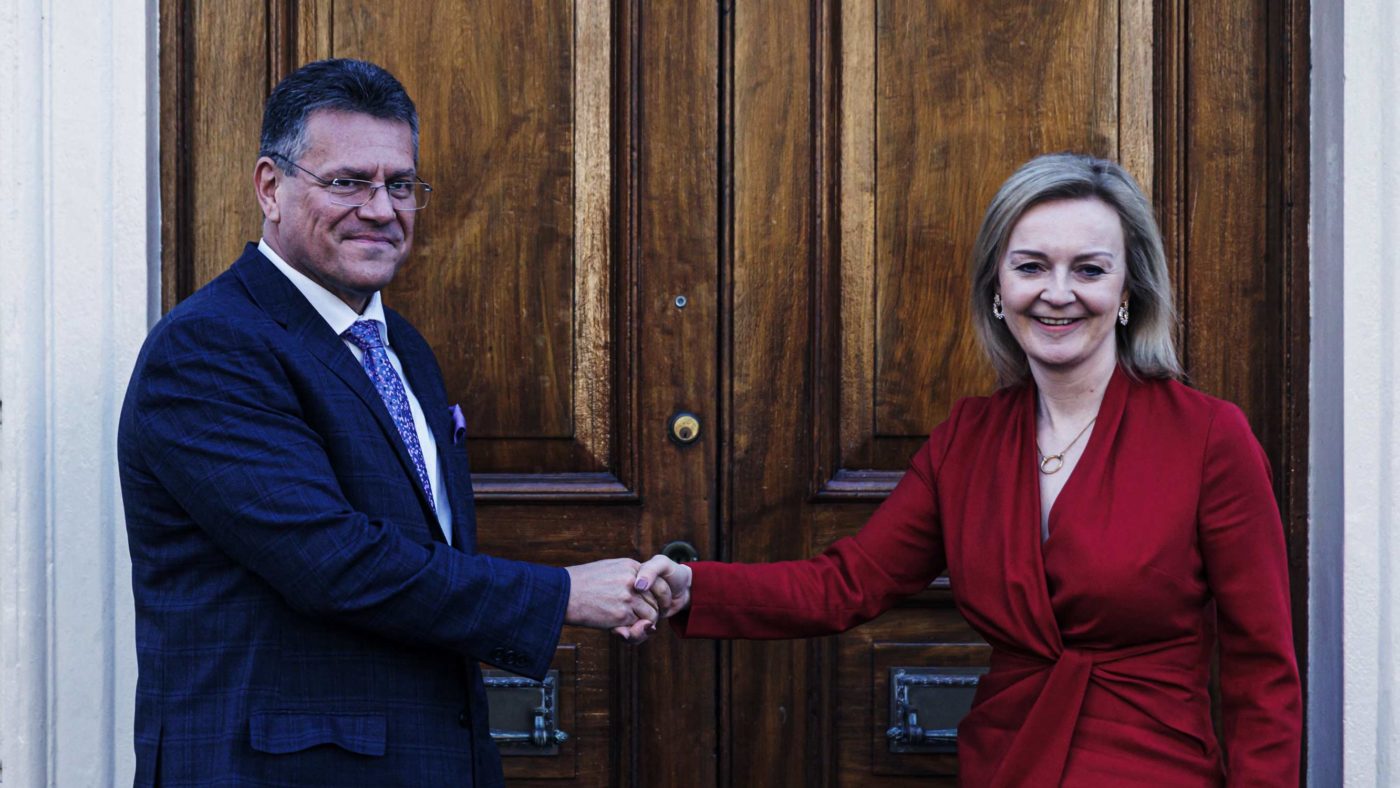The Foreign Secretary has announced legislation to allow the Government to override certain parts of the Northern Ireland Protocol that have been put into effect in national law.
As I set out in my recent IEA briefing paper, the Protocol is costing NI and the UK as a whole hundreds of millions of pounds, and there is no evidence for the proposition that Northern Ireland will experience a ‘best of both worlds’ effect from its unfettered access to both the UK and EU markets. Nor is there any evidence that UK goods are unlawfully making their way to Ireland, despite the Protocol being only partially implemented so far.
So it seems clear that change must be made to the Protocol to protect prosperity, peace and stability in Northern Ireland – and that this can be done without causing damage to the single market. In fact business groups and all parties in Northern Ireland, including the nationalist and non-aligned parties, are calling for change to the Protocol. However, by not accepting that this may need unilateral action from the UK, they are not being realistic – if the EU will not negotiate the substance of the Protocol (and the Commission has firmly rejected this so far) how are such changes to come about?
Predictably, Truss’s announcement has been met with howls of anguish from those who consider unilateral steps to be a threat to the ‘rules-based international order’, putting the UK on a par with Putin’s Russia as a rogue state and international pariah.
Truss, though, is firmly of view that the action is lawful and supported by legal advice to that effect.
That legal advice has not yet been published, but it may well draw up on such concepts as the doctrine of necessity, and the precedence of a prior treaty, in this case the Belfast (‘Good Friday’) Agreement. Usually in international law, a second treaty will override a prior agreement on the same subject matter, but in this case that presumption is reversed because the Protocol is expressly stated to be without prejudice to the Good Friday Agreement.
But even if the proposed unilateral actions are not supported by those principles of international law, can it really be the case that the UK government must continue to hold to a treaty that is having the opposite effects to those intended by the parties and causing economic costs that are out of all proportion to the EU’s possible losses from its breach?
Indeed, if the UK continues to respect the provisions of the Withdrawal Agreement – and the Protocol in particular – concerning dispute settlement, which includes provisions on sanction and compensation, we are arguably not breaching international law at all. In the same way, a party who breaches a contract but pays damages to the other party to compensate their loss, would not be considered to have broken the law or acted illegally.
From a trade perspective, the effect that EU customs and regulatory barriers (which in many respects the UK still maintains on our rest of world trade) have had on trade between Great Britain and Northern Ireland – where we have identical substantive regulation and highly integrated economies – has been dramatic. The implications when we think about that with reference to global trade and competition are far-reaching.
If substantively identical goods in already integrated supply chains between Great Britain and Ireland can’t surmount the barrier to trade in a cost-effective manner, what does that say abut the barriers we are presenting to perfectly safe goods from around the world? How much extra are we paying for them, and how many are just not making it to market at all?
In this context, the effort from Brexit Opportunities minister Jacob Rees Mogg’s to reform UK border controls for imports from the EU and the rest of the world looks both essential and potentially transformative.
Click here to subscribe to our daily briefing – the best pieces from CapX and across the web.
CapX depends on the generosity of its readers. If you value what we do, please consider making a donation.


